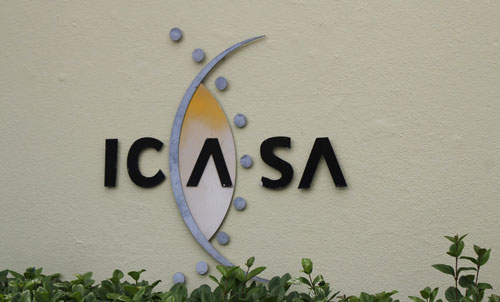
The telecommunications regulator is under fire from industry players after it published a framework for local-loop unbundling (LLU) on Wednesday, with one senior regulatory executive accusing it of having “failed to meet its mandate”, “kicking everything into touch” and being “hopelessly ill-prepared to deal with the process”.
The Independent Communications Authority of SA (Icasa) had been given a deadline of the end of November 2011 to implement LLU — a process whereby Telkom’s competitors are given access to its “last mile” of copper cables into homes and businesses — but on Wednesday instead published only a framework in terms of which it will pursue possible interventions.
LLU is regarded by many in the industry, especially Internet service providers, as a way of bringing down the cost of fixed-line broadband and spurring innovation and new product development.
Marc Furman, co-chair of the Internet Service Providers’ Association, says he is “very disappointed” with Icasa’s LLU framework, especially given that Icasa is proposing the first intervention in a year’s time. “We’re completely disappointed that Icasa engaged on this issue with the industry [only for it to] accommodate all of Telkom’s problems [with LLU].”
He says the authority has ignored the “low-hanging fruit” that it could have gone after immediately to begin the process of unbunding.
Siyabonga Madyibi, executive for regulatory affairs at Dimension Data division Internet Solutions, says Icasa has “deferred just about everything” and has “failed to do the prior work it was supposed to have done”. He suggests Telkom’s legal team has exercised “strong influence” over Icasa.

“The industry has been saying this is a complicated process and Icasa should have started working on this a long time ago,” Madyibi says. “Icasa is hopelessly ill-prepared to deal with this process.”
He says that the industry was “hoping to take a major step forward in the process of creating a more open, innovative and competitive marketplace through the release of the LLU framework”.
“What we effectively got was an outline of how Icasa plans to get to the framework, which has effectively pushed the entire process back by a year.”
Madyibi adds that Icasa only began applying its mind properly to LLU about four months ago and has effectively deferred the process by at least a year. The authority now plans to implement only the most basic form of unbundling — “bit-stream” access — in a year’s time, and then only if it is “financially feasible” to do so. More far-reaching forms of unbundling will take much longer if, indeed, they are ever implemented.
He says Icasa has “failed to meet its mandate” because it has not achieved what it set out to do in accordance with ministerial directives.
Icasa is worried that Telkom’s access-line deficit — where it loses money on the average fixed-line in service, before value-added services like voice calls and broadband are added — could put the operator in a precarious financial position if LLU is implemented immediately.
Telkom was meant to use the five-year period between 1997 and 2002, when it enjoyed a statutory monopoly (this became a de facto eight years), to rebalance its tariffs to deal with, among other issues, the access deficit. It’s now clear it didn’t do this, at least not fully, and is using the deficit as leverage to attempt to stop or slow down implementation of LLU.
Mark Slingsby, technical director at RSAWeb, says the framework is “not unexpected” and contains “no real nasty surprises”, but he wants the process to happen much faster than proposed by Icasa. He says bit-stream access should be made available to Telkom’s rivals “immediately” with each additional form of LLU being introduced every three months.
The process “could have been quicker”, but has been delayed because Icasa is “grossly understaffed”, Slingsby says.
“Full LLU will require a tariff determination from Icasa for these shared services, with Telkom supplying figures that are transparent and commented on by the industry,” he says. “Icasa must adjust these tariffs to fair wholesale market value and challenge each of Telkom’s cost calculations, otherwise it will be open to abuse and cost-loading.”
Ultimately, he says, Telkom should be split into two separate entities — one providing wholesale services and the other retail products — or, at the very least, Icasa should intervene to stop the company from cross-subsidising between its wholesale and retail businesses. “There’s a lot of that happening at the moment.” — Duncan McLeod, TechCentral
- More on the scale of Telkom’s access-line deficit: a 2010 interview with Nombulelo Moholi
- Subscribe to our free daily newsletter
- Follow us on Twitter or on Google+ or on Facebook
- Visit our sister website, SportsCentral (still in beta)




